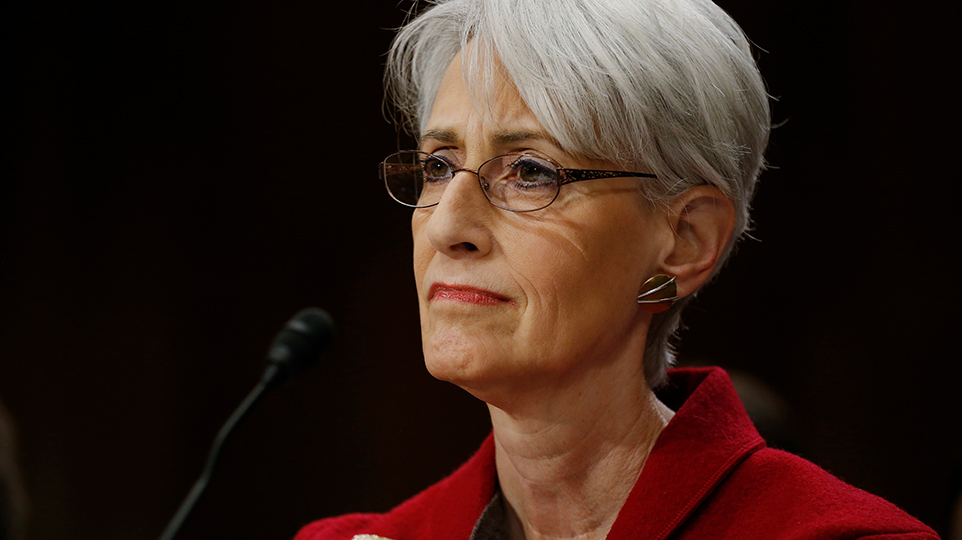
U.S. Deputy Secretary of State Wendy Sherman. /Reuters
U.S. Deputy Secretary of State Wendy Sherman. /Reuters
Editor's note: Rabi Sankar Bosu is an Indian contributor to Chinese media outlets. He writes about Chinese politics, social and cultural issues, and China-India relations with a special interest in the Belt and Road Initiative. The article reflects the author's views, and not necessarily those of CGTN.
The announcement of U.S. Deputy Secretary of State Wendy Sherman's China visit from July 25 to 26 has captured much media attention. It is worth noting that Sherman is the first highest-ranking U.S. diplomat to visit China this year after the grand celebrations marking the 100th anniversary of the founding of the Communist Party of China (CPC) on July 1. Her visit is expected to be a new beginning in terms of building closer China-U.S. ties and cooperation between the world's two biggest economies that has been in tatters on many contentious issues in recent years.
It is expected that during this visit, China and the U.S. will exchange views on bilateral relations as well as regional and international issues of common concern, including the denuclearization of the Korean Peninsula and better opportunities for the Chinese companies in the U.S.
The U.S. is keen to iron out its differences with China in political and economic arenas as reflected by the statement of the U.S. State Department on July 21 prior to Sherman's China visit: "These discussions are part of ongoing U.S. efforts to hold candid exchanges with the PRC officials to advance U.S. interests and values, and to responsibly manage the relationship."
The Sino-U.S. relationship, which has been seen as the "most important bilateral relationship" in the world, was severely hampered by former U.S. President Donald Trump's antagonistic approach toward China under his "America First" strategy by means of trade restrictions, ban on Chinese tech giant Huawei from participating in building 5G networks in the U.S., conspiracy theories surrounding COVID-19, interference in China's internal affairs and others.
The latest example of the U.S. intimidation in China's internal affairs is the issuance of the "Hong Kong Business Advisory" on July 16.
Taking oath as the 46th president of the U.S., Joe Biden has continued to display hostility towards China like his predecessor. A series of tough measures against China taken by the Biden administration so far clearly suggest that the U.S. administration will continue to be tough with China instead of normalizing the relationship.
Echoing the allegation of "genocide of Uygurs in Xinjiang" by the then U.S. Secretary of State Mike Pompeo, the Biden administration has mounted diplomatic pressure on its Western allies to stop using the cotton from Xinjiang. However, the cotton ban is nothing but a U.S.-led human right propaganda against China, in the words of Brazilian academic Sueli Vasconcelos, "a great hypocrisy for the Western countries led by the United States to condemn China while ignoring the tragedy at the U.S.-Mexico border."

Aerial photo shows a machine sowing cotton in a field of 100 mu (66,667 square meters) in Aksu, Xinjiang Uygur Autonomous Region, northwest China, March 26, 2021. /Getty
Aerial photo shows a machine sowing cotton in a field of 100 mu (66,667 square meters) in Aksu, Xinjiang Uygur Autonomous Region, northwest China, March 26, 2021. /Getty
Since the outbreak of coronavirus in the Chinese city of Wuhan in December 2019, the U.S. has been politicizing the origin tracing of COVID-19 in order to smear and attack China. But the fact is that the U.S. political leadership's non-managerial ability to tackle the pandemic and disregard of science have caused a tragic loss of millions of lives in the country. It should be noted here that since July 15, 55 countries have sent letters to the World Health Organization Director-General Tedros Adhanom Ghebreyesus emphasizing that origins tracing shall not be politicized.
Furthermore, a joint expert group from 10 countries including the U.S., UK, Japan and Australia with 17 Chinese experts conducted a 28-day joint study from January 14 to February 10 in China. The joint mission's visits to the Wuhan Institute of Virology and the Hubei provincial and Wuhan centers only demonstrate China's openness, transparency and responsible attitude on the origin tracing work. The U.S. must also allow the WHO expert mission to visit its bio-labs, including Fort Detrick, Maryland, in a manner similar to China.
Against this backdrop of the U.S. administration's negative anti-China works and policies, Sherman's China visit has raised some speculations. Can she steer the Sino-U.S. ties in a new direction? Can her visit break the impasse of rivalry between the two countries that has affected the world at large?
If she intends to have the upper hand in the U.S.'s China policy by imposing "U.S. interests and values" on China, the very purpose of this visit will fail. If she wants to get the bilateral relations back on track, she should avoid the zero-sum game and uphold the spirit of win-win cooperation as a natural choice between two major powers.
But if she wants to focus on placing its geopolitical supremacy over China undermining China's economic, political and strategic influences on the global stage, China will definitely state its "firm attitude in defending national sovereignty, security and development interests," as Chinese Foreign Ministry spokesperson Zhao Lijian said on July 22. As such, it is hoped that Sherman will be more careful in her discussion with Chinese officials to deepen bilateral relations and understanding.
The most important thing in the diplomacy of major countries is to build mutual trust. Unfortunately, the China-U.S. ties today have reached a nadir due to the U.S. attempts to undermine China's global image. Since the U.S. has been facing the heat of the economic crisis due to the COVID-19 pandemic, it needs a helping hand from China. As such, Sherman's China visit will be a chance to turn over a new leaf in China-U.S. relations which matters a great deal for the two countries and the world as a whole.
(If you want to contribute and have specific expertise, please contact us at opinions@cgtn.com.)

